Here Are Some Phrases To Say And Not Say To Your Kids
As a parent, you undoubtedly want to be good to your kids and raise them as best you can. However, you’re also human – odds are, you’ll say things every now and again that hurt your children. You may speak before you think or repeat phrases you heard growing up, without registering the harm they can do.
If you’re unaware of some of the most commonly used no-no phrases in parenting, here’s a cheat sheet of statements to avoid and their (better) alternatives…

Don’t Say “I’m Ashamed Of You”
This may seem like an insignificant comment, but it’s one that has lasting effects. These kinds of comments can make children feel like a disgrace and internalize their mistakes. When it’s said often, it follows that child into adulthood, and they may develop the need to please everyone around them.

Say “Although What You Did Was Wrong, I Still Love You”
It’s important to let a child know when they’ve messed up, but it’s all about your delivery. If your kids does something bad or disappointing, you can still tell them they’re in the wrong. But it’s also necessary to let them know that their mistake doesn’t mean you love them any less, and that their actions don’t define them.
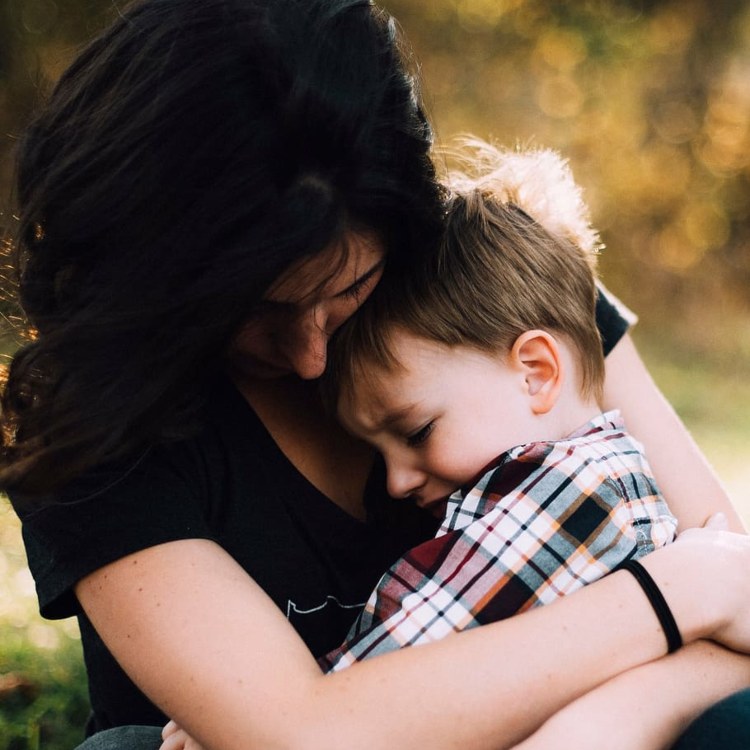
Don’t Say “Everything Will Be Okay”
Positivity is everything, but it’s not great if it means you’re being unrealistic or dishonest with your child. Children are a lot more resilient than we sometimes give them credit for, so try explaining the situation in a different way. Avoid promising them that all will be well, especially if you, the adult, aren’t certain of the outcome.
Say “We’re Going To Work Together To Figure this Out”
There are many ways that you can reassure your child without throwing out the “everything will be okay” line. Try telling your child that you both will work together to fix what’s happening. Not only is this way more honest, but it’s a great way to teach your kid teamwork in coming up with a solution.

Don’t Say “You Don’t Feel That Way”
How would you feel if someone upset you, then tried to tell you how you felt about it? You probably wouldn’t be too pleased, and you may even feel insulted. The same is true for children. Don’t ask them how they feel but then tell them otherwise. It’ll just make them less likely to share their feelings with you.
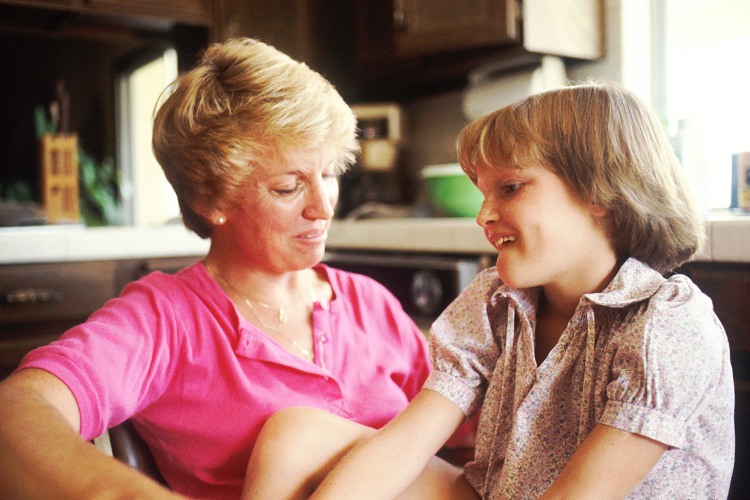
Ask “Can You Explain How You Feel?”
Instead of dictating your child’s feelings, ask them to explain how they really feel. That way, you can get a better understanding of what’s really going on inside their heads. You’ll understand that when they “hate” someone or something, they’re simply hurt by whatever happened. Teaching them to verbalize their emotions improves kids’ communication skills and validates their experiences.
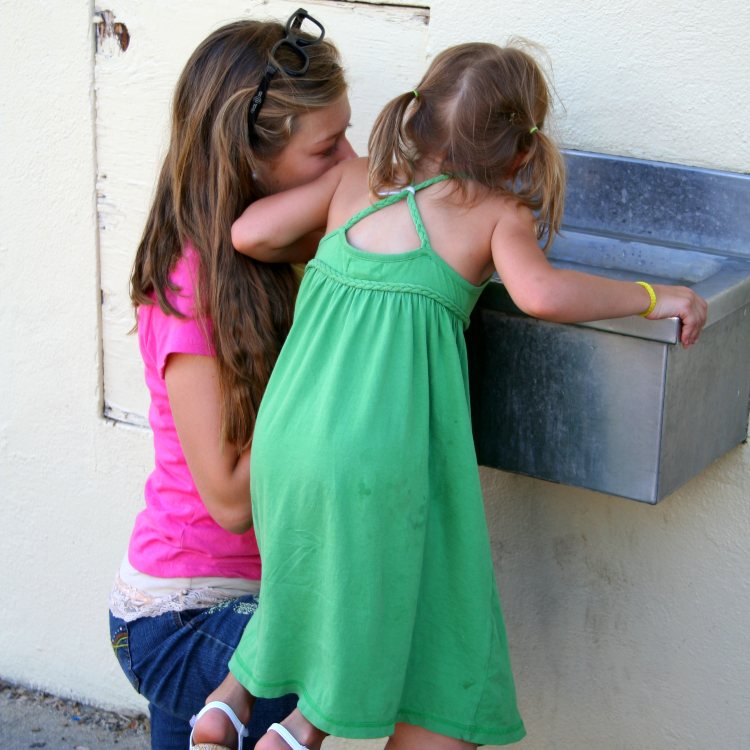
Don’t Say “Let Me Help”
It might be difficult not to offer help to your child. As a parent, you probably feel a strong instinct to protect your child and make sure they succeed. However, telling your child you’re going to help can seem like you don’t believe in their ability to do it alone, which can negatively affect their self confidence.
Ask Guiding Questions
Instead of trying to “help” by taking over, ask questions that’ll guide your child in the right direction. For example, if they’re doing a math equation, you can ask, “would it be correct to take care of what’s in the brackets first?” You’re giving them the correct step, but still leaving the decision up to them, allowing them to retain some sort of independence and control.

Don’t Say “You’re Fat”
Childhood obesity is a very sensitive subject, especially for the child in question. It’s cruel to disparage anyone’s outward appearance, even if it’s coming from a place to concern. Not to mention, you’re unlikely to inspire any kind of positive change or reaction from a child by telling them that they’re fat.
Swap The Statements With Questions
Talking to a child about their weight can be a touchy subject, but it’s not impossible. Don’t focus on what’s on the outside. Instead, ask them how they feel, how they’re being affected by their weight, and if there’s anything you can do to help. This is not the full solution, but it’s how a respectful, kind dialogue is started.
Don’t Say “Stop Crying”
Although you might be tempted to snap at your kid and give in to your own frustration, don’t order them to stop crying. First of all, they’ll probably start crying even harder. Secondly, it cues your children to understand that you’re more focused on your own annoyance or the people in the grocery store than whatever your kids are feeling.
Ask “Would You Like To Talk About It?”
If your child is upset and/or crying, sometimes, the best thing you can do is to help them get it all out. And the best way to do that is to encourage them to talk about how they feel. Just think about how many times you’ve felt better after getting something off your chest.

Don’t Ask “Why Can’t You Be More Like _______?”
If you’ve read any parenting books, you’ll know that one of the worst things you can do is to compare your child to another child, especially a sibling. Not only does it make the child feel like they aren’t enough, but it can also breed resentment towards whoever they’re being compared to.
Say “I Know You Can Do Better Than This”
Instead of comparing your child to someone else, keep the conversation all about them and the things you know they can do. You don’t need to mention someone else to inspire your child to do better.

Don’t Say “I Don’t Have Time”
In truth, you won’t always be available to your children. However, an abrupt statement like “I don’t have time” can leave you child feeling unimportant.

Ask “Can We Do This A Little Later?”
Instead of saying no outright, put the plans off for a later date. Your child will see (and appreciate) that you’re trying to make time for them. Even better, explain why you can’t play or take them to a friend’s house right at that moment.

Don’t Say “You’re A Disappointment”
There’s almost nothing that can break a child’s spirit faster and more effectively than calling them a disappointment. This statement can lead your kid to believe something is inherently bad about them, which may destroy their confidence or sense of self.

Say “Your Actions Were Disappointing”
There’s still much debate about using the word “disappointing” where children are concerned, but if it’s to be used, let the child know that they themselves are still loved, even if their actions were questionable.

Don’t Say “We Don’t Have Money For That”
Children are easily stressed and as adults, it’s our job to let them be carefree kids. If a child asks for something that you can’t afford, responding by saying you’re broke or poor can make your child anxious.

Say “We’re Saving Our Money For Something Else”
Telling your child that you’re saving up for something else is a good way to let them know that there are more important things in life than a toy or candy, and it shows them discipline. You can use this explanation for kids of almost any age, and it opens a door for talking about financial responsibility with older kids.
Don’t Say “You’re Grounded Unless You Do What I Say”
Threats have the capacity to make any situation more volatile, especially where children are involved. Finding a better way to communicate early on, while still retaining respect as a parent or guardian, is possible – without threats.

Say “When You’re Done With Your Chores, Then You Can Go Out”
Telling your child that they’ll be allowed to do something after a chore is done creates an expectation. You communicate to them that there are conditions and responsibilities that need to be met in order to earn certain privileges.
Don’t Say “I Don’t Think You Can Do It”
If you’re looking to completely crush your child’s confidence, then this is the line you use. If you’re not trying to do that, there are other ways to show your concern when your child is trying to complete a difficult task.
Say “It Won’t Be Easy, But I’m Right Here Cheering You On”
It’s imperative to let your child know that the road ahead won’t be smooth, but even more important to let them know that you can be counted on for support.
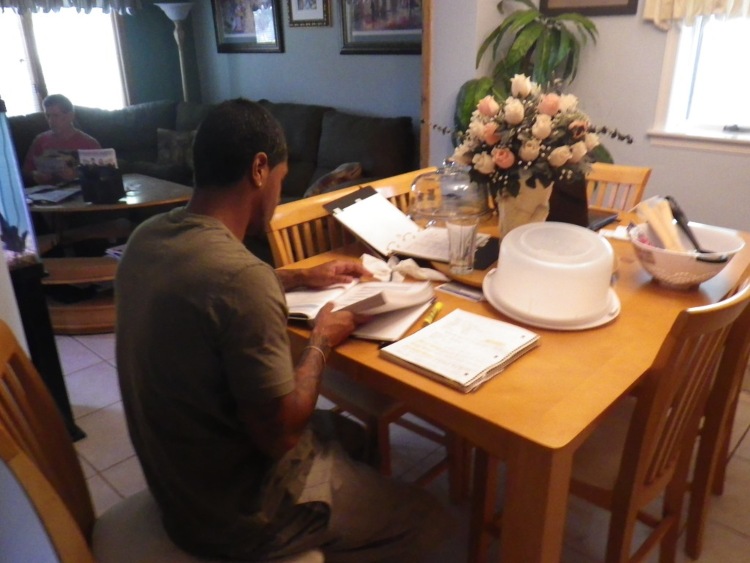
Don’t Ask “Why Didn’t You Get An A?”
In today’s age, more factors than ever might be influence your child’s performance in school. It’s important not to criticize your kids and assume the worst; find out the root of the problem before deciding that your child simply didn’t study.

Ask “Can You Explain This Grade to Me?”
By asking your child to explain their grade, you’re giving them a chance to tell you all the things that led up to their poor performance. It’s less likely that they’ll be defensive, and you two can work out together how to problem solve before the next test.
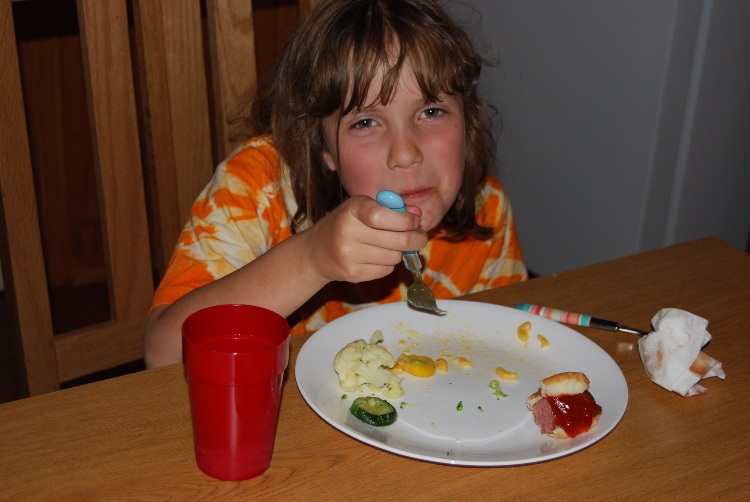
Don’t Say “No Candy Unless You Finish Your Dinner”
Not only is this a threat, but it also diminishes the amount of joy your child will find in their meal. It will create stress and make eating feel like a chore. Expect vegetables spread around on a plate and early complaints that they’re already full.

Say “We Eat Our Dinner First And Candy Comes After”
By letting your child know (with a calm statement) that their treat will follow their meal, you’re keeping the dining experience light. There’s no pressure to finish their food in this situation, and your child may be more motivated to eat the healthier meal first.

Don’t Say “I Will Never Forgive You”
The word “never” has such a final ring to it, especially where children are concerned. That finality can be very damaging. It shows the child that you’ll always remember whatever wrong they’ve done, with no hope for forgiveness.
Say “What You Did Hurt Me And I Need Some Time To Think About It”
It’s never a good idea to hide how you feel when your child has wronged you, although the extent of your frustration may need to be tempered down. Let your child known that you were hurt by their actions and that you need some time to process whatever’s been done. Ideally, you can always find a way to forgive your child. Communicate your needs as a person, and save the deep conversation for a time when you feel calmer.

Don’t Say “Hurry Up”
This may seem overly sensitive, but rushing a child can cause them a lot of undue stress. When they’re stressed, they’re less likely to pay attention to what they’re doing and leave homework assignments or sports gear behind.
Say “Let’s Hurry”
It’s a good parenting technique to let a child feel like you two are in a situation together. It takes off some of the stress and – even if you’ve been been ready for 20 minutes – they might be willing to let you help them gather items or find their shoes.
Don’t Say “You’re Selfish”
When you tell a child they’re selfish, it makes it seem like something is wrong with them on a fundamental level. Your child will wonder why they’re selfish. but instead of focusing on how to be less so, they’ll worry about who else thinks something is wrong with them.
Say “Try Thinking About How Others Will Feel Before Doing That”
Instead of calling your child out for being selfish, instill in them the need to take other people’s feelings into account before they make certain decisions. It’ll make them more compassionate, empathetic, and considerate.
Don’t Say “That’s Not Good Enough”
Children are easy to mold and influence, and the little things you say can stay with them for the rest of their lives. Avoid disparaging your child and what may have actually been their best effort. Instead, offer guidance on your expectations and tools to meet them.
Say “Maybe We Can Work Together To Do Better Next Time”
When you tell a child that you’re willing to help them succeed at something they previously failed at, you encourage them. You can offer your kid a sense of hope and comfort that now they have someone on their side. Give them the courage they need, instead of helping them stay down in the dumps.
Don’t Say “I Do Everything For You”
If you think only adults can feel indebted to another person, then think again. When you constantly reiterate that you’re the one providing for a child, they’ll feel like they owe you. But more than that, they’ll feel like a burden – something that can leave a permanent scar on a child.
Remind Them That You Do Things For Them Because You Want To
If you’re ever reminding someone of the things you do for them, make sure it’s coming from a place of love. As a parent, it’s your responsibility to take care of your kids, so don’t weaponize your role as a caregiver. If you want to explain that you’re saying “no” this time, but you don’t every time, then communicate that fully and acknowledge that you’re happy to be their parent and take care of them.
